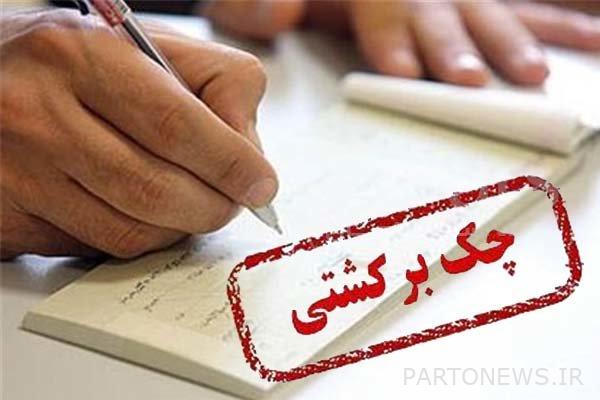The bill to block the issuer of returned checks will start tomorrow

According to the monetary and financial news, quoting the public relations of the Central Bank, Mehran Moharramian, Deputy Minister of New Technologies of the Central Bank, regarding the details of blocking the bank accounts related to the issuer of returned checks, said: To block the returned check funds in all the accounts of the person who issued the returned check.
In other words, until today, if an individual’s check is returned to the same bank, if he had funds, those funds were used to pass the amount of the check, but from tomorrow, this issue will spread to all banks. The way funds are blocked in individual accounts is as follows, starting with accounts with a higher balance and gradually decreasing until it can cover the amount of the returned check deficit, until the same amount is blocked and the account itself will not be blocked here, but the remaining amount That exists in the account will be blocked.
Muharramian emphasized: the final limit is the same amount as the returned check. This process does not prevent the check from being returned. Instead, the funds that the person has in all banks will be blocked to the extent of the amount of the returned check. That is, suppose a person has a portion of the check amount in his account, so naturally that amount is considered and passed, and the rest of the amount, that is, the balance and the returned check deficit in all banks, will be blocked by that amount.
The Deputy Minister of New Technologies of the Central Bank added: “After this, the process of referring the interested person to the judiciary and other things that should have been done will be completed.” Amounts issued and withdrawn by order of the judiciary; After the consent of the beneficiary of the check is obtained, the blocked funds will naturally be released.
Muharramian emphasized: “Therefore, from tomorrow, with the very good coordination we had with the members of the Article 90 Commission of the Islamic Consultative Assembly, this work will begin and become operational.”
Noting that this measure will be an important step in reducing returned checks, he said: “Dear compatriots, note that this will increase the consequences of returning check checks, and as a result, they will be more careful than checks.” Eat less back.
“Another issue I have to mention is that we currently have tens of thousands of daily returned checks in the country, which is a high number,” the central bank deputy director of new technologies concluded. We think that with the implementation of this part of the law, this statistic will naturally decrease significantly. As with the implementation of purple fishing checks and the registration of them and the cases that have been implemented so far, we have been able to increase the rate of return of checks from about ten percent for old checks to less than seven percent (about 6.5 percent) for fishing checks. God willing, this decreasing trend will continue.

